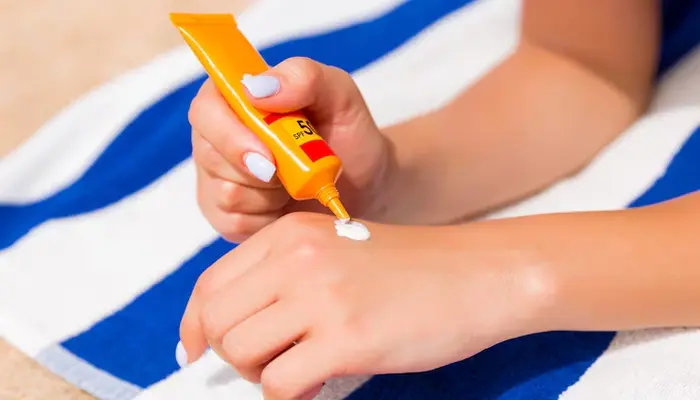
Winter is often associated with cooler temperatures, cloudy skies, and a welcome break from the harsh summer sun. However, many people make the mistake of neglecting sunscreen during these colder months, believing that the sun’s intensity has reduced. This is a common misconception, as the sun’s harmful UV rays can still cause skin damage in winter. The key to healthy, glowing skin throughout the year is proper protection, and choosing the right sunscreen for winter weather is essential.
In this blog, we will discuss why sunscreen is necessary during the winter months, the weather conditions to consider, the types of sunscreen you should use, key ingredients to look for, and top sunscreen brands available in Pakistan.
Why Sunscreen Is Necessary in Winter
In winter, the sun may seem less intense, but ultraviolet (UV) rays can still reach your skin, causing long-term damage. There are two types of UV rays that contribute to skin damage: UVA and UVB.
- UVA Rays: These rays are present year-round, even during the winter months. UVA rays penetrate deeper into the skin and contribute to premature aging, wrinkles, and the formation of dark spots.
- UVB Rays: These rays are stronger during the summer but are still active in winter. UVB rays are the primary cause of sunburns and contribute to skin cancer.
Moreover, winter conditions such as snow, wind, and dry air can make your skin more vulnerable to sun damage. Snow, for example, can reflect up to 80% of UV rays, meaning that you are exposed to UV radiation from both above and below. This can increase your risk of sunburn, particularly in areas like the face, ears, and hands that are often exposed.
Sunscreen helps prevent sunburn, reduces premature aging, and protects the skin from skin cancer caused by prolonged UV exposure. Therefore, it is important to wear sunscreen even during cloudy or wintery days.
Factors to Consider When Choosing Sunscreen in Winter
Winter weather conditions can be drastically different from the scorching heat of summer, so it is important to select a sunscreen that is suitable for these unique conditions. The following factors should influence your choice of sunscreen:
1. Sun Protection Factor (SPF)
The SPF rating measures the amount of protection a sunscreen offers against UVB rays. Even though the sun may seem less intense in winter, it’s still important to choose a sunscreen with sufficient SPF to protect your skin. Dermatologists generally recommend using a sunscreen with an SPF of 30 or higher for everyday wear.
- For daily activities like going for a walk or running errands, an SPF 30 sunscreen should suffice.
- For extended outdoor activities such as skiing or hiking in the mountains, opt for a sunscreen with SPF 50 or higher.
Remember that the higher the SPF, the greater the protection. SPF 50 blocks 98% of UVB rays, while SPF 30 blocks 97%. Although the difference may seem minimal, it could make a big difference in preventing skin damage over time.
2. Broad Spectrum Protection
Look for sunscreens labeled “broad spectrum”. Broad-spectrum sunscreens protect your skin from both UVA and UVB rays. Since both types of rays contribute to skin damage, it’s important to choose a sunscreen that provides protection against both.
3. Water Resistance
Even in winter, you may be exposed to snow, rain, or sweat, which can wash away sun protection cream. If you plan to engage in outdoor sports or activities, it is a good idea to opt for a water-resistant sunscreen. Water-resistant sunscreens last longer on the skin and provide continuous protection even if you get sweaty or wet.
4. Ingredients to Look For
When choosing a sunscreen, always check the ingredient list. The effectiveness and safety of the product depend on its formulation. Here are some of the best ingredients to look for in sunscreen:
- Zinc Oxide: A mineral sunscreen that provides broad-spectrum protection. Zinc oxide forms a physical barrier on the skin, reflecting UV rays. It is non-irritating and great for sensitive skin types.
- Titanium Dioxide: Another mineral sunscreen ingredient that offers broad-spectrum protection. Like zinc oxide, it creates a physical barrier to protect against UV rays.
- Avobenzone: A chemical sunscreen ingredient that offers UVA protection. It helps prevent premature aging, dark spots, and wrinkles.
- Homosalate and Octinoxate: These are common chemical filters that protect against UVB rays. They are often used in combination with other ingredients to ensure full-spectrum protection.
- Niacinamide: This is a form of Vitamin B3 that helps reduce redness, irritation, and inflammation. It’s especially good for sensitive or dry skin.
- Hyaluronic Acid: This ingredient helps retain moisture in the skin, which is crucial during winter when the skin can become dry and flaky.
- Ceramides: These lipids help restore and maintain the skin’s protective barrier, keeping moisture locked in.
5. Type of Formula
Depending on your skin type and preference, there are different types of sunscreen formulas you can choose from:
- Cream Sunscreen: Ideal for dry skin, as it provides extra hydration.
- Gel Sunscreen: Best for oily skin, as it’s lightweight and non-greasy.
- Spray Sunscreen: Convenient for quick application but be careful to apply it evenly.
- Stick Sunscreen: Convenient for targeted application, especially around the face and neck.
Weather Conditions to Consider in Winter
In addition to choosing the right sunscreen, understanding the weather conditions during winter is vital. Consider these weather factors when choosing a sunscreen for the colder months:
- Cloudy Days: Even when the sky is overcast, 80% of UV rays can still reach your skin. Therefore, it is essential to wear sunscreen every day, even if the sun is not visible.
- Snowy Conditions: Snow can reflect UV rays, increasing exposure to UVA and UVB rays. When skiing or snowboarding, ensure that you apply sunscreen with a higher SPF to protect your skin from both direct and reflected UV radiation.
- Wind and Dry Air: The dry winter air can dehydrate your skin, making it more prone to irritation and damage. Opt for a sunscreen that contains hydrating ingredients like hyaluronic acid or glycerin to help lock in moisture.
Best Sunscreen Brands in Pakistan for Winter
There are several excellent sunscreen options available in Pakistan. Here are some of the top brands that offer high-quality sunscreen suitable for winter:
1. Neutrogena Ultra Sheer Dry-Touch Sunscreen SPF 50+
Neutrogena is a global skincare brand known for its effective sunscreens. The Ultra Sheer Dry-Touch sun block offers broad-spectrum protection with an SPF of 50+. It has a lightweight, non-greasy formula that is ideal for everyday wear, even during the winter months. It’s water-resistant and perfect for individuals who spend time outdoors.
2. La Roche-Posay Anthelios XL SPF 50+
La Roche-Posay is another well-known international brand that offers excellent sun protection. Anthelios XL SPF 50+ provides high protection against both UVA and UVB rays and is suitable for sensitive skin. This sunscreen is formulated with antioxidants, which help prevent premature aging caused by sun exposure.
3. L’Oréal Paris UV Perfect Matte & Fresh Sunscreen SPF 50
L’Oréal’s UV Perfect Matte & Fresh Sunscreen offers high SPF protection and is designed for oily and combination skin types. The matte finish makes it perfect for individuals with oily skin who are concerned about a shiny complexion. It also contains Vitamin E and is water-resistant, making it a great option for both daily use and outdoor activities.
Read More: Parker Solar Probe: Unveiling the Secrets of the Sun’s Corona
4. Dermacos UV Shield SPF 50
Dermacos is a popular skincare brand in Pakistan known for offering dermatologically tested sunscreens. UV Shield SPF 50 provides excellent protection against both UVA and UVB rays and is enriched with Vitamin E. It is ideal for winter weather conditions, providing both sun protection and hydration to the skin.
Read More: Extravagant Wedding Trends of Pakistani Vloggers
5. Nivea Sun Protect & Moisture SPF 50
Nivea’s Sun Protect & Moisture SPF 50 is a great option for those looking for both sun protection and added moisture during the dry winter months. It is formulated with Vitamin E and glycerin, which help hydrate and nourish the skin while offering broad-spectrum protection.
6. Eucerin Sun Fluid SPF 50
Eucerin is known for its dermatologically tested products, and their Sun Fluid SPF 50 provides high protection against UVA and UVB rays. This sunscreen is ideal for sensitive skin and provides long-lasting hydration, making it perfect for dry winter skin.
Conclusion
Choosing the right sun protection cream in winter is essential for maintaining healthy skin year-round. Even during cloudy, snowy, or chilly days, UV rays can still damage your skin, leading to premature aging, dark spots, and skin cancer. By understanding the weather conditions and the ingredients in your sunscreen, you can select the best sunscreen for your skin type and lifestyle. Remember to look for broad-spectrum protection with SPF 30 or higher, and choose a product that suits your skin’s needs, whether it’s hydration, oil control, or sensitive skin protection.
The sun blocks from brands like Neutrogena, La Roche-Posay, Nivea, and Dermacos offer excellent protection, and incorporating sunscreen into your daily skincare routine will ensure that your skin remains healthy and protected all winter long. Stay safe, and don’t forget to apply sunscreen before heading out!
Follow Day News on Google News, Instagram, YouTube, Facebook, Whats App, and TikTok for latest updates















